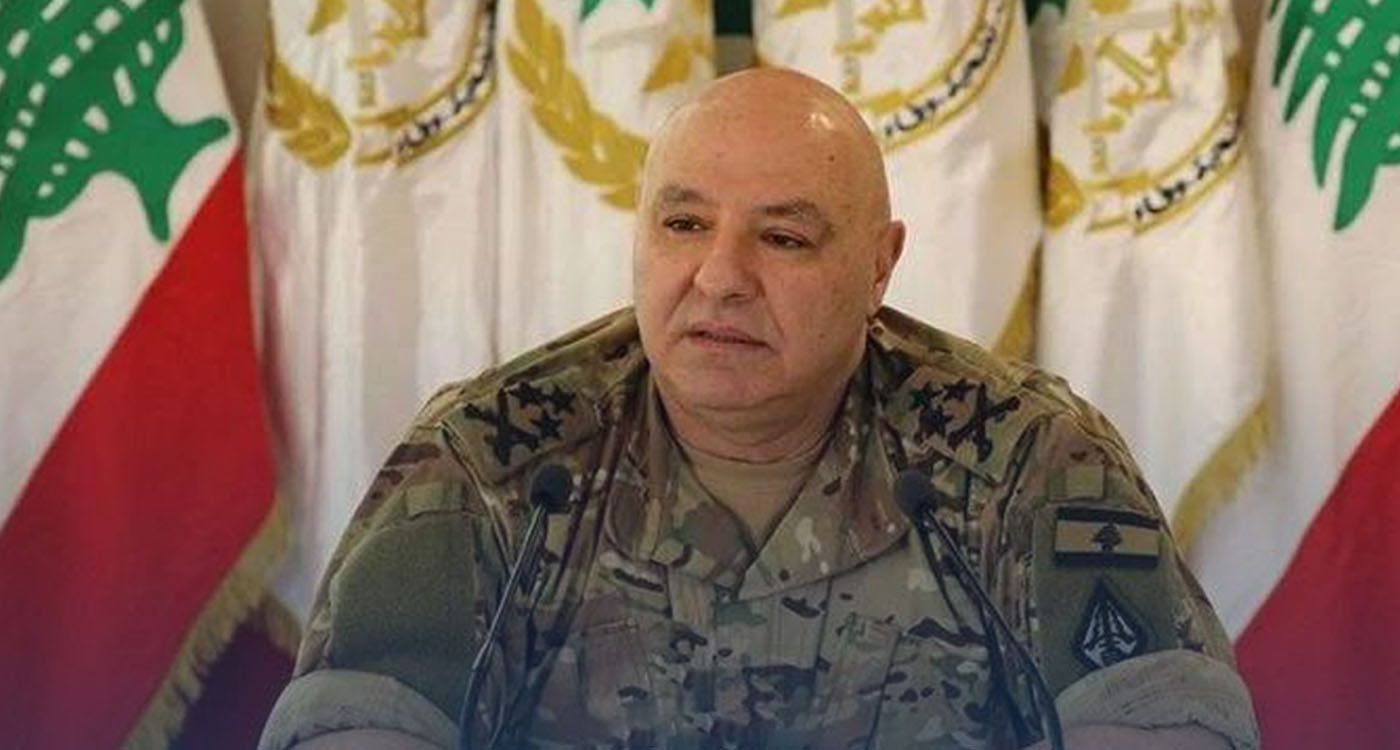
With only two months left until the expiration of Army Commander-in-Chief General Joseph Aoun's mandate, the same question that surfaced at the end of 2023 is once again looming: can Lebanon avoid a vacancy at the helm of its military, the sole fully operational institution in a country where others remain paralyzed amid a profound security, political and economic crisis?
In the current wartime context, as the State grapples with institutional vacuums at various levels, the Lebanese Armed Forces (LAF) find themselves in a precarious position. January 10, 2025, is expected to mark the retirement of the military's chief, whose mandate was initially extended for one year on December 15, 2023, merely one month before its original expiration on January 10, 2024.
“The retention of senior military officials is essential for the country's stability,” remarks a former minister, speaking on condition of anonymity. “However, this matter is closely linked to the shifting power dynamics among Lebanon's key political parties,” he notes.
In the crosshairs of the FPM and Hezbollah
Since taking the helm of the LAF in 2017, General Aoun has played a crucial role in maintaining order and stability in a context marked by internal political divisions, tensions with Israel and large-scale displacement. While he commands significant popularity both locally and internationally, he has long been targeted by the Free Patriotic Movement (FPM), driven by the presidential ambitions of its leader, Gebran Bassil, who views the army chief as a formidable rival.
The prospect of renewing General Aoun's mandate faces strong opposition from Bassil's party and is also viewed unfavorably by Hezbollah, which perceives him as closely aligned with American interests.
In recent weeks, particularly following the Israeli commando operation in Batroun on November 1, Hezbollah escalated its smear campaign against the army commander via its media outlets and social networks. The group accuses him of failing to “anticipate” the abduction of Imad Amhaz, a captain of the civilian navy allegedly involved in arms trafficking for Hezbollah via Syria. This campaign serves as a strategic maneuver to undermine any effort to extend General Aoun's mandate.
The rivalry between the FPM and General Aoun has long-standing roots, reaching a peak in 2023 when Bassil launched a strong campaign against Aoun, who was being considered as a potential successor to former President Michel Aoun. Bassil branded the army chief as an “infidel” and accused him of financial irregularities in army contracts – claims he made without any evidence, amounting to defamatory attacks. He also alleged that General Aoun was “under Western influence,” deeming him unsuitable as a “consensus presidential candidate.”
Should General Aoun’s mandate be extended, the FPM is expected to strongly oppose it, with plans reportedly underway to file a legal challenge against any such decision. They could appeal to the Constitutional Council if Parliament votes to extend General Aoun’s tenure, or possibly – though less likely – appeal to the Council of State if the extension were made through a Cabinet decree, a scenario complicated by both political and legal challenges.
Traditionally, the army chief maintains close ties with the president of the Republic, yet the presidency has remained vacant since October 31, 2022.
For Hezbollah, the situation is equally complex, depending on how its ally, Parliament Speaker Nabih Berri, positions himself. In recent discussions with the Lebanese Forces (LF) – who introduced a bill on October 28 to extend Aoun’s mandate for an additional year (until January 2026) – Berri stated he would “consult his MPs.” It is widely understood, however, that Berri’s MPs align closely with his directives, and sources close to the matter suggest that Berri is waiting on regional and international cues before taking a definitive stance.
The LF’s proposed bill aims to uphold stability and continuity within the LAF Command as Lebanon navigates a complex, multidimensional crisis.
According to an LF source, the party and its allies believe that extending the army chief’s mandate is crucial for political stability amid growing uncertainty, asserting that leadership changes are ill-advised in wartime.
However, parliamentary sources suggest the bill may face invalidation as it solely addresses General Aoun’s mandate rather than all security chiefs, unlike the comprehensive extension enacted in 2023.
In response, several parliament blocs, including Renewal and National Moderation, are working to introduce a broader bill in the coming days. This new proposal would extend the mandates of all security heads, including regular forces, for an additional two years – a measure the LF would support.
While Ain al-Tineh has yet to officially weigh in, possibly awaiting these new proposals in Parliament, momentum appears to be building toward extending various security heads’ mandates to prevent further institutional vacancies and safeguard State continuity.
The retention of military and security leaders in their posts is critical as Lebanon faces heightened turbulence, making stability within military institutions essential for preserving national security.
This objective gains added urgency with the anticipated visit of a US official between November 15 and 20, focusing on reinforcing support for the LAF and emphasizing the full implementation of United Nations Security Council Resolution 1701.




Comments